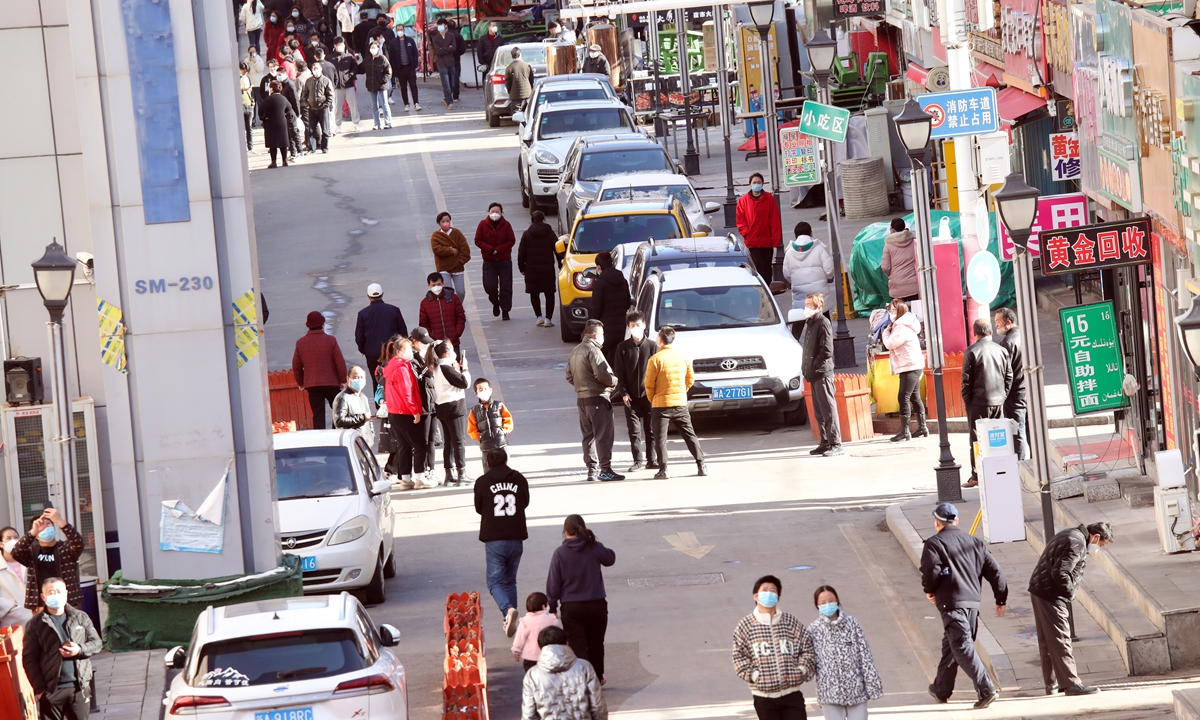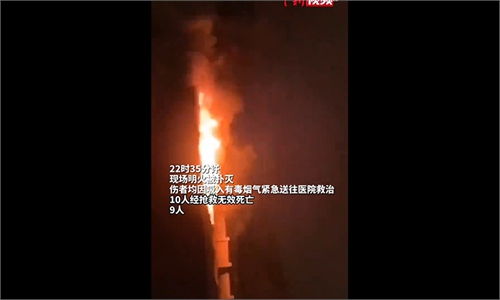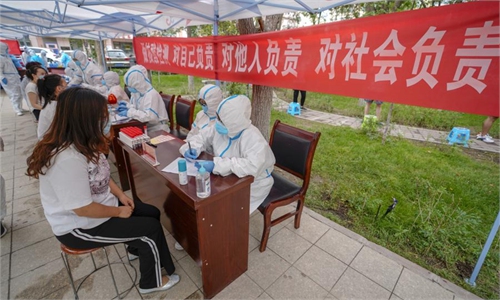Urumqi announces plans to resume public transport, production in low-risk areas
Multiple cities in Xinjiang lift restrictions, but 'severe situation' still challenges southern regions

Some residents shop in Shuimogou District of Urumqi in Northwest China's Xinjiang Uygur Autonomous Region on November 26, 2022. Photo: from IC.
Local authorities in Urumqi, capital of Northwest China's Xinjiang Uygur Autonomous Region, announced on Sunday that the city will gradually resume public transport and production activities related to people's livelihoods in low-risk areas from Monday, one day after the city declared that it has basically cleared COVID-19 cases at the community level and vowed to restore order to the lives of residents in low-risk areas in a phased manner.
According to local officials, from Monday, urban public transport will be gradually restored, with buses and taxis allowed to operate in districts and counties.
China Southern Airlines said on Sunday that it will gradually restart four routes departing from Urumqi from Monday. These include flights from Urumqi to Changsha in Central's Hunan Province, to Sanya in South China's Hainan Province, to Zhengzhou in Central China's Henan Province, and to Southwest China's Chongqing Municipality. More air services will resume in the near future.
The city will also gradually reopen essential businesses located in low-risk areas, including food markets, supermarkets, drug stores, restaurants, gas stations, banks, barbershops, hardware stores, post offices, and parks and scenic spots. However, dining-in at restaurants and cultural and entertainment venues will remain suspended.
A tourist surnamed Ye, who has been stranded in Urumqi for more than two months due to the outbreak, said she's excited about the resumption of railways and airlines and can't wait to buy tickets to go back home.
Traveling to Urumqi in September and then sealed off at her friend's home in Toutunhe District since early October, she told the Global Times on Sunday that she and her friend were finally allowed out of the residential compound this morning, and took away some fried chicken and hamburgers from a restaurant since eat-in service is still suspended.
Some other cities in Xinjiang region are also lifting COVID-19 restrictions. The cities of Shihezi and Korla announced that normal public order would resume from Sunday.
Shihezi said buses and taxis, as well as supermarkets and food markets will resume operations from Sunday. While people can drive around within the city, strict travel restrictions will be implemented on the city's highways to prevent risks from imported cases. Korla resumed daily life and work routines for people in low-risk areas from 10 am on Sunday.
A Xinjiang-based anti-epidemic expert surnamed Zhang told the Global Times on Sunday that while the epidemic has been put under control in the cities mentioned above, places in the southern Xinjiang region including the prefectures of Hotan and Kashi still reported large numbers of daily cases.
Since November 16, the Xinjiang region has reported more than 900 local new cases every day. According to the regional health authority, Xinjiang recorded 992 local cases on Saturday, 443 of which were from Kashi and 413 from Hotan.
Zhang pointed out the continuous infections seen amid strict restrictions can be attributed more to the highly transmissible virus in the current peak season of respiratory diseases, which means it is still extremely challenging to put the outbreak under control.
Just like other epidemic-hit cities, the very urgent problems in Xinjiang region are the guarantee of daily supplies for residents and medical services for elderly people who had underlying diseases, Zhang said.
At the press briefing of the Urumqi city government on Sunday morning, officials emphasized plans to focus on the problems raised by local residents, saying the local government will soon release a series of "policy packages" to help residents and enterprises relieve their troubles.
"For individual problems, requests and suggestions, we welcome residents to register at the community and we will together negotiate and figure out solutions," said the official.



